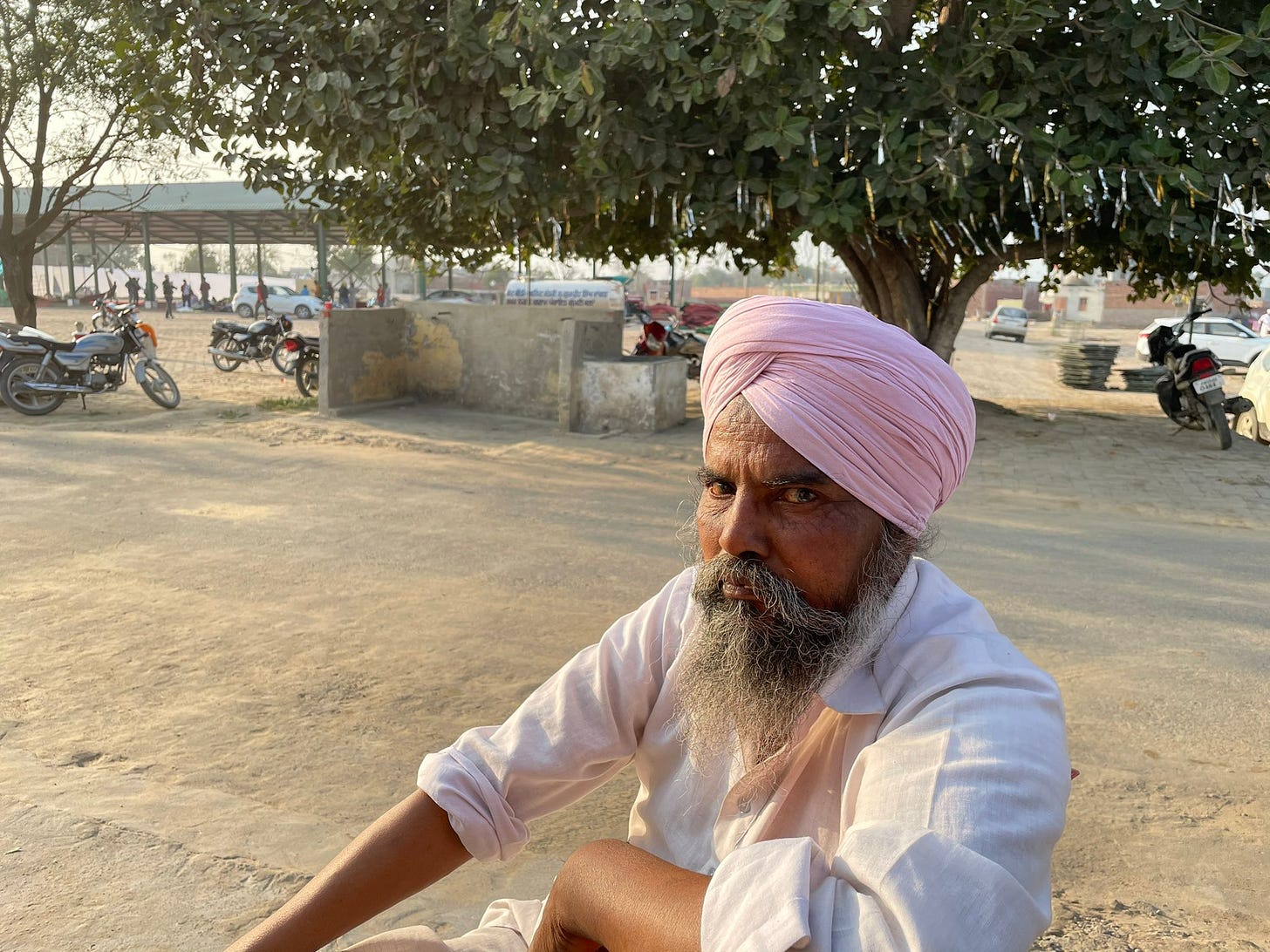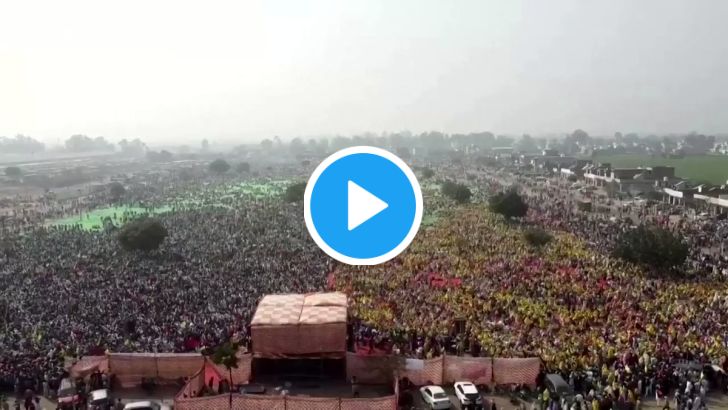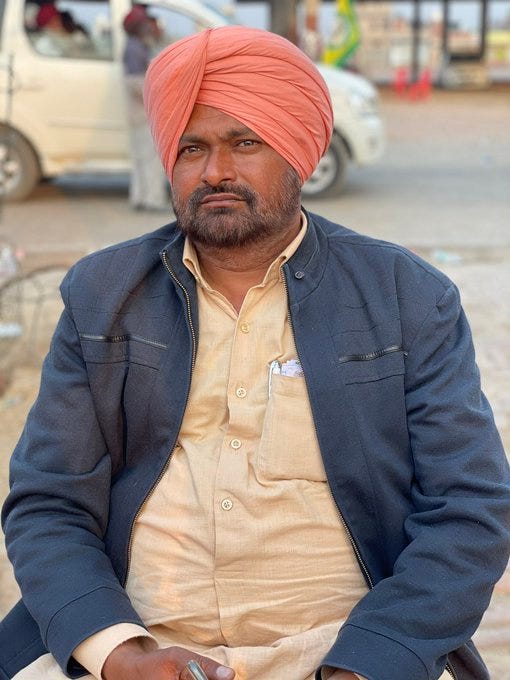Sandeep Singh: Farmers And Labourers Unite Against Modi In Barnala Maharally
This weekend’s Barnala rally in Punjab marked the first time a joint demonstration against the new farm laws was held between farm unions and labour organizations
Sandeep Singh
February 22, 2021 | 4 min. read
This weekend’s Barnala Maharally in Punjab marked the first time a joint demonstration against the new farm laws was held between farm unions and labour organizations.
The Mazdoor Kisan Maharally was organized by BKU (Ugrahan) and Punjab Khet Mazdoor Union (PKMU), and it has become one of the largest rallies held to date in Punjab. Farmers could be seen waving green union flags while labourers were proudly displaying their red labour flags.
Farm unions claim that approximately 2 lakhs (200,000) farmers and protestors participated in the Maharally, populating an area of around 9 lakhs square feet. Crowds could have been much larger, as about 500 tractors and trollies could not reach the protest site due to traffic jams.
PKMU State President Jora Singh Nasrali shared the significance of the rally and that its objectives were met, “these laws will have a deadly impact on the laborers. However, the BJP has been misleading people with propaganda that it will snatch land from landowners and provide it to the landless. This is one of the reasons why most laborers have not been participating in the demonstrations as they don’t have enough actual knowledge about the laws,” he goes on to add, “this is the reason why we thought that we need to bring Punjab’s 32 percent landless Dalit population together, educate them on the realities of the new laws, and come out in support of the farmers’ protest as it impacts them too. I think we achieved this objective.”
Caste continues to play a major role in Indian politics and society. The BJP, according to Nasrali, has been attempting to divide people along caste lines during the course of the agitation, “the landless and the landowners have had conflict over many years and some are trying to capitalize on that divide. But when we inform Dalits that these laws will impact laborers too, then they too gathered against new farm laws.”
Many have noted how the farmers’ protest has successfully brought together communities and broken down previous caste barriers across India with many Dalits traveling to and joining the protests within Punjab and outside Delhi, as Nasrali expands “Organizations should bring Dalits and Jatts together, and raise the common issues both will face. Without bringing laborers and farmers together, we cannot battle the Modi government’s fascist and privatization policies”
The Maharally was organized quickly, within a week of its announcement. PKMU and BKU(Ugrahan) brought farmers and labourers from 1,600 villages of 15 districts of all three regions of Punjab. One farm leader claimed that most protestors were from the Malwa region of Punjab.
Lachman Singh, the General Secretary for PKMU, also stressed the unity and strength within the movement.
“After the January 26 incidents, propaganda was spread that the farmer movement has weakened. But this rally has given a reply to those critics. It has proved that the farm protests have intensified and people from across different professions and classes came to rally together. If you look at who attended - it included teachers, electricity board employees, and advocates.”
Speaking about the potential impact on employment, Lachhman adds, “right now you can see lakhs of labourers work in mandis. This is the reason that this law is not only an issue of farmers but also of labourers. If the mandi system gets weakened with corporatization, only a few will have jobs,” he continues, “If farmers will lose their lands, laborers will lose their meals. It’s a matter of existence for Dalits.”
Laborer Kala Singh, of Khunan Kalan in the Muktsar district of Punjab, had arrived in Barnala for the Maharally, “these laws will impact laborers more than the farmers. Initially, they used to provide a lot of things on subsidized rates via the public distribution system. Now they only provide food grains. They have already made the PDS system hollow, If PDS distribution gets more weakened, if FCI stopped procuring food grains, then how will we get the food grains?”
“We think it’s an attack by corporates not on farmers but on the entire sector as a whole. That’s why we are saying it’s not only a struggle for farmers. We think it’s a matter of both farmers and laborers. We expect that medicine for our diseases can only found in a common struggle. If corporates started doing farming on large scale all of us will be rendered jobless.”
After listening and talking to labor leaders and laborers, I moved to Mehraj village of Bathinda district where a rally of youngsters will be held against new farm laws and arrest of the farmers on February 23.
Sitting on a chair and taking sips of tea, Swaran Singh, a landless Dalit who is a tailor by profession, is silently watching youngsters make arrangements for another rally.
“The fate of farmers and laborers are interlinked. If farmers get impacted then laborers too will be impacted.”
As for the BJP attempting to split the movement across caste lines, Swaran Singh shares, “the BJP is a party that believes in Brahmanical social order, and it wants to put laborers down. This party is afraid of an uprising of labourers,” he goes on, “the BJP wants to divide us but we don’t even listen to them. A neighbour of ours is a BJP worker, he never talks to us as he knows we won’t listen to him.”
Sandeep Singh hails from Machhiwara, Punjab. As an independent journalist, he has worked with many prominent Indian news organizations. Sandeep has been following the farmer’s protest in Punjab since its onset and traveled with them to Delhi. He spends most of his time at the Singhu border protest site. You can follow Sandeep on Twitter @Punyaab
Baaz is home to opinions, ideas, and original reporting for the Sikh and Punjabi diaspora. Support us by subscribing. Find us on Twitter, Instagram, Facebook at @BaazNewsOrg. If you would like to submit a written piece for consideration please email us at editor@baaznews.org.





